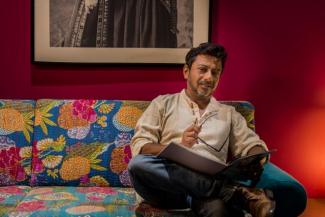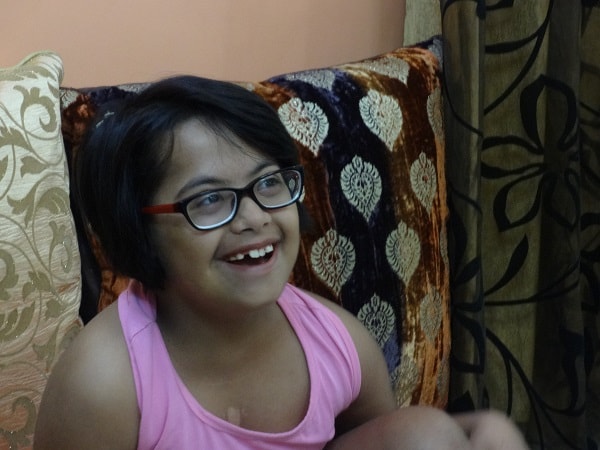
Raising the Bar, an Indo-Australian documentary, is a lively, cheerful narrative on Down syndrome and has won many prestigious awards and accolades. Here we speak to director Onir who says the film aims to create awareness, encourage inclusion, celebrate differences and conquer preconceived boundaries.
You are an acclaimed Indian film director known for unconventional works like ‘My Brother…Nikhil’ (on AIDS and homosexuality) and the National award winning ‘I am’ (on gay rights, sperm donation and child abuse). When and how did you get associated with Raising the Bar?
Actually, it was not a conscious or preplanned decision. I know Mithu (Bhowmick Lange), co-producer of Raising the Bar, for some years. She has a child with Down syndrome and is the director of Mind Blowing Films (the leading distributor of Bollywood films in Australia and New Zealand). She was keen to do a film on Down syndrome and asked me if I was interested. I agreed because it was a challenging project. So, the idea was sown almost 4 years back and developed into an Indo-Australian collaboration.
Raising the Bar is refreshingly upbeat, positive, even funny in parts, about children with Down syndrome from Australia and India travelling for the World Down Syndrome Congress in Chennai. How was the whole concept thought through?
In 2015, the World Down Syndrome Congress was being held in Chennai. The gist was to cover the Congress riding on a lively, cheerful narrative. In Raising the Bar, we track the story of 6 children with Down syndrome, 3 from Australia and 3 from India, who travel with their families to Chennai. It is the story of love, determination and human spirit and overcoming preconceived boundaries to conquer. The film delves into the lives of these 6 children, with plenty of candid shots and conversations at home with parents and family members. It culminates with all of them meeting at the Congress. We finally finished and locked the film in 2017.
You have been able to portray the personal stories of individuals and their families living with Down syndrome in India and Australia very engagingly. What challenges did you face filming them?
The biggest challenge while making Raising the Bar was building trust. The film required us to come up very close to children and their families. I didn’t want any inhibitions and self-consciousness on screen. I wanted all the actors to be totally free, frank and comfortable before the camera. To build this acceptance and faith was the hardest part. I was invading their privacy. I was entering their homes, their living room, their bedroom; seeing how they live, eat, interact. I had to know them intimately. That required a lot of familiarization and breaking the ice. I had to convince them I was not shooting for any selfish interest. I had to put them totally at ease first before I could start filming. That took me the longest time.
What was the objective of making Raising the Bar?
To illustrate that our society is populated by varied individuals and those with Down syndrome form one such spectrum of people. For instance, we have featured 23-year-old Devanshi Joshi from Delhi who works at Gram Bharat, a shop that promotes swadeshi products. She works hard to maintain her dignity and independence and manages her life in her own way. Through her example, we wish to convey that we must provide a supportive environment for different people to strive and thrive.
What was the biggest learning experience from your groundwork and fact-finding about Down syndrome?
I have not made this film from any scientific or medical perspective. It’s purely an emotional landscape of children with Down syndrome and their families. It is not an educational film on Downs. Down syndrome here is actually a metaphor for all kinds of discrimination and prejudice. We have to learn to accept people as they are. We have to love them as they are. We have to eliminate biases from our mind, and be more kind and compassionate. The film is more about loving and caring.
What do you think will be the key takeaway of audiences watching Raising the Bar?
There are so many people who have had no exposure to Down syndrome. This film is to sensitize people. It is to inspire viewers to consider diversity in all of its facets, to create opportunities that embrace differences. As human beings, we have to learn to look around more, recognise different types of people, smile at them and look at people in the eyes. We need to look at the differently abled, not look away. This film sets out to change mindsets, attitudes and emotionally engage with the audience; taking individuals through the incredible individual stories of courage and success whilst challenging them to look inwards and take a moment to reflect on their personal barriers for change.
Why do you think there are so few films on health issues in India, despite the burden of diseases and health concerns being immense?
I think finances pose a big obstacle. Making a film is time consuming and expensive. It is difficult to recover the cost. Films or documentaries on health have free screening most of the times. You have to get block bookings done from school or other institutes to promote your film and recover cost.
How would you describe in one word your experience filming Raising the Bar?
Enriching. Rewarding.
Interview with little Aarshia (the youngest of the 6 children in the film). Video link below
Did you enjoy working in the film?
Yes.
Did you feel shy?
No. I felt excited.
Which was your favourite scene?
I loved the scene where I won a boxing match.
And who were playing with?
I was playing with my Papa.
What did your friends say about the film?
They loved it.







